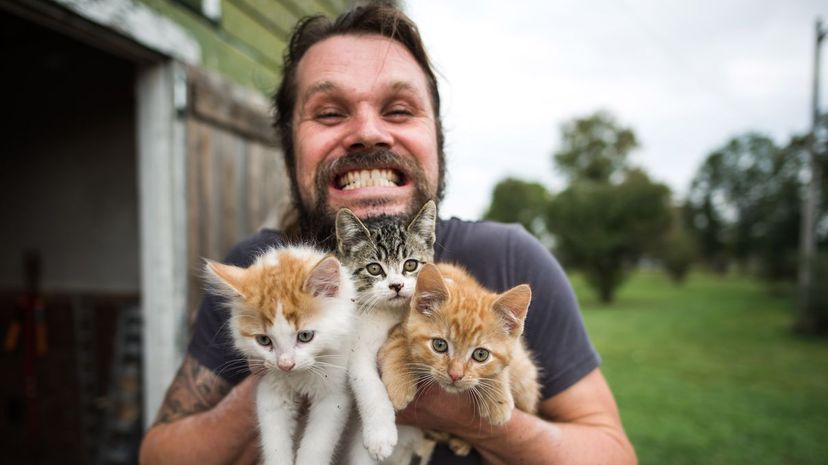
About This Quiz
There are over 70 breeds of domesticated cats, and they're all adorable in their own ways. Even the hairless Sphynx has an irresistibly charming personality that makes up for its lack of traditional cuteness (but beauty is in the eye of the beholder). Which type of cat is your favorite? Do you love the fluffy Persian that spends most of its time lazying around the house? Or do you prefer something a little more active like the Bengal?
Several old wives' tales have sprung up about the origin of the popular breed the Maine Coon, which is known for its shaggy and rugged appearance. One myth is that the first Maine Coons were breed with American Bobcats, which produced their large size. An even stranger story describes them as the product of cross-breeding between a house cat and raccoon. Of course, neither of these stories are genetically possible. It's thought that they actually originate from cats that escaped off European ships in the 1700s, but that story isn't nearly as interesting.
Okay, we're not kitten around anymore. It's time to put your feline knowledge to the test and see how fur-miliar you are with your cat breeds. Let's get started!
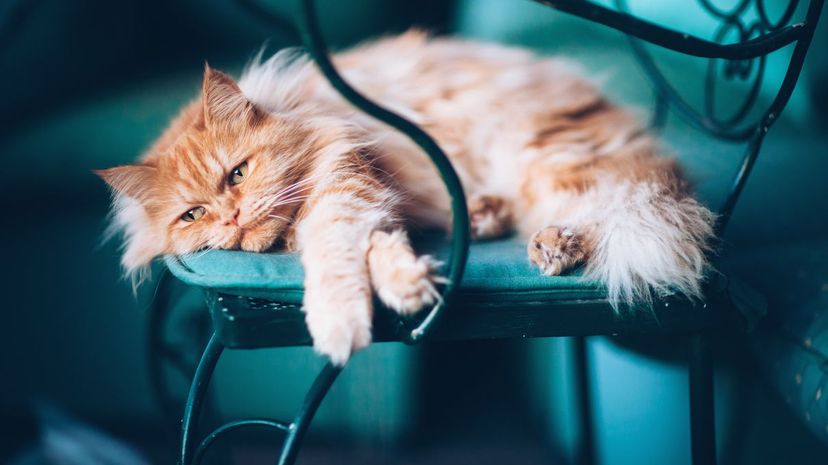
If you're looking for a well-tempered, low energy cat, a Persian might be for you. They get their names from their origins in Persia (now Iran). The biggest downside of owning a Persian is their high-grooming need.
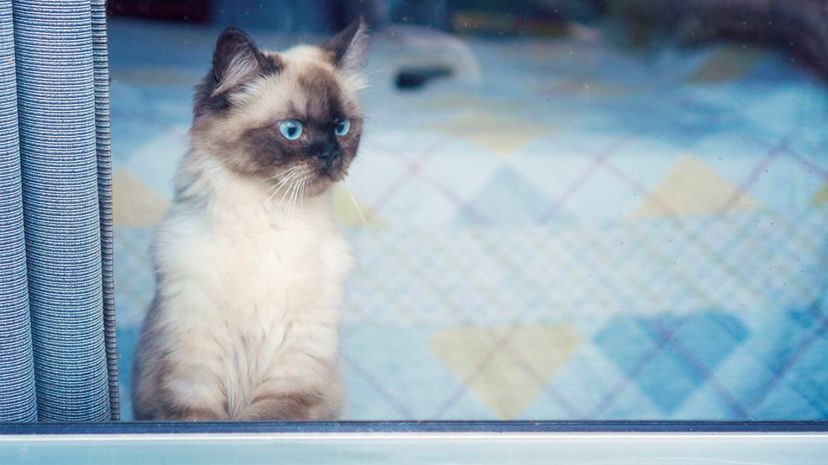
A Himalayan cat looks like a cross between a Siamese and Persian cat. They're known for having good temperaments and doing well as indoor cats. However, they also require constant attention and grooming.
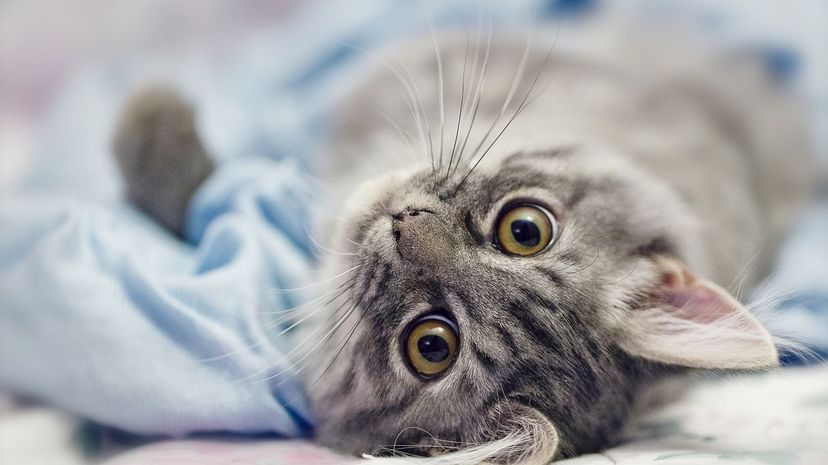
If you're looking for a breed that might treat you with dead mice at your feet, look no further than the American Shorthair. They're a medium-sized cat that's fairly low-maintenance and does well outdoors.
Advertisement
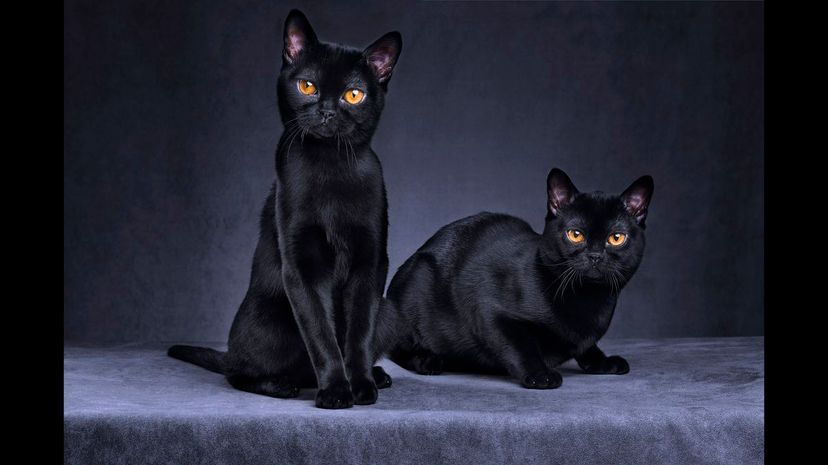
The Bombay is an all-black breed with striking yellow eyes. The first Bombay cat was a mix between an American shorthair that had yellow eyes and a Burmese. Just make sure you don't let a Bombay cross your path unless you want bad luck!
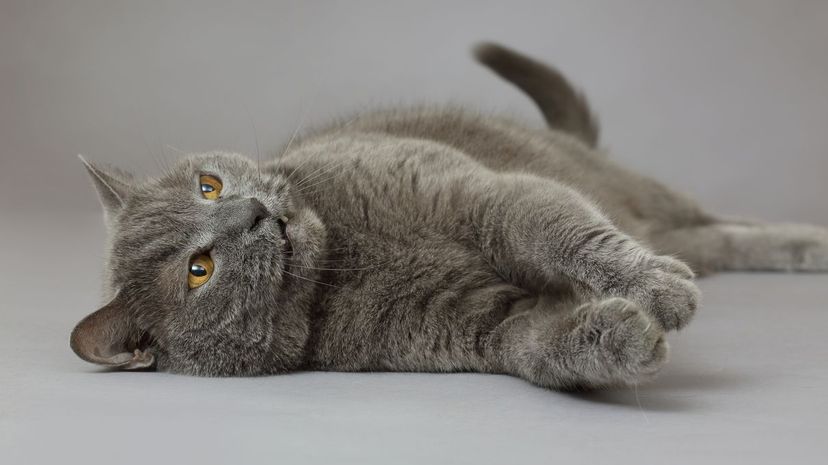
The Chartreux is a quiet cat that was initially used to protect monasteries from vermin. They're known to be one of the more intelligent breeds and can learn their names and how to do basic tricks.
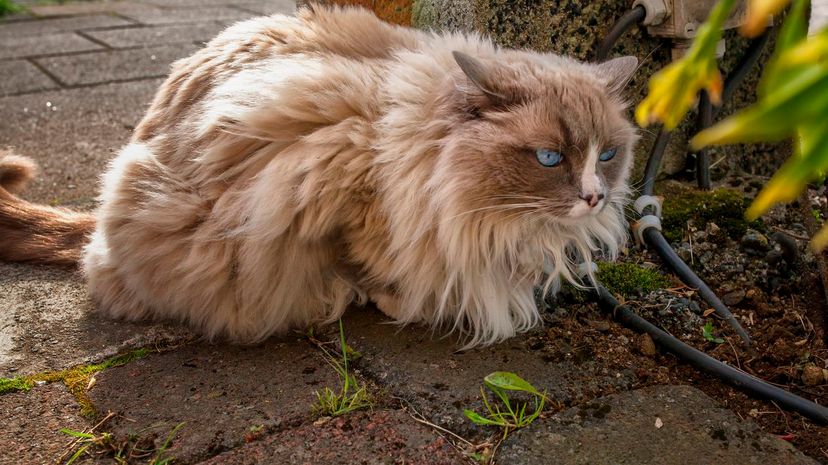
The Cymric has a reputation as one of the friendly breeds of a house cat. They make an excellent choice for anybody with children since they're playful and not aggressive. They look almost identical to the Manx but have slightly longer fur.
Advertisement
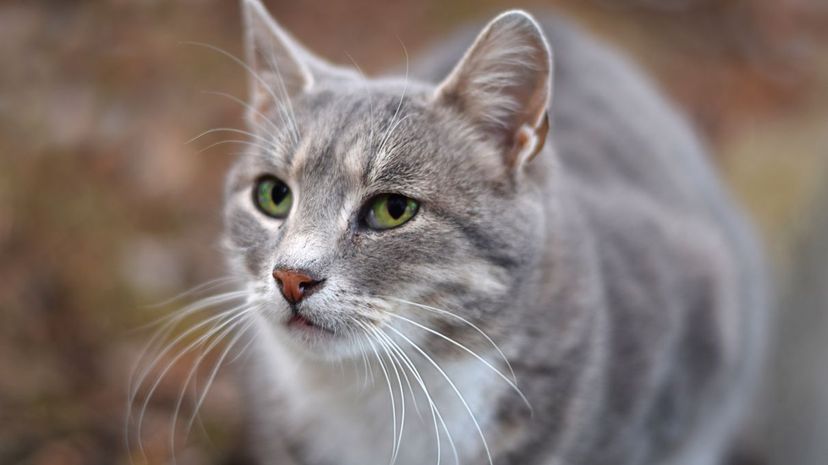
The American Wirehair came from a genetic mutation. Two barn cats in 1966 produced a litter of cats with the Wirehair mutation. Only one of the cats survived and went on to propagate a brand new breed.
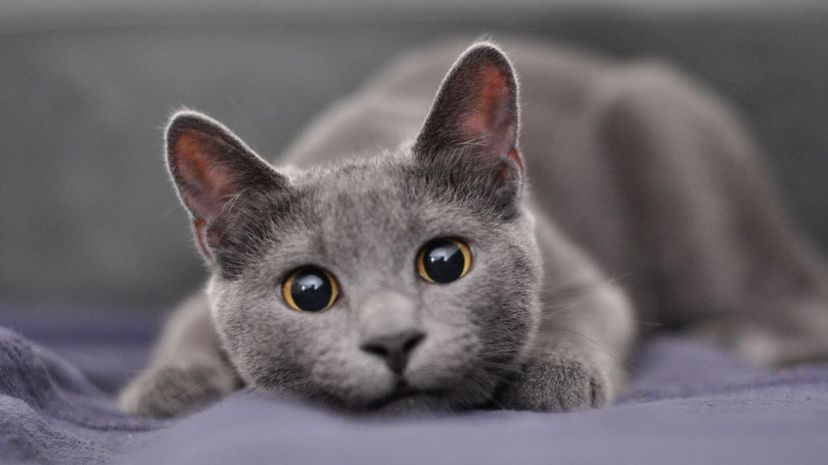
Russian Blues are easy to spot because of their bright green eyes and blue coat. They are known to be relatively quiet and avoidant of strangers. They dislike change and generally do better in a constant environment.
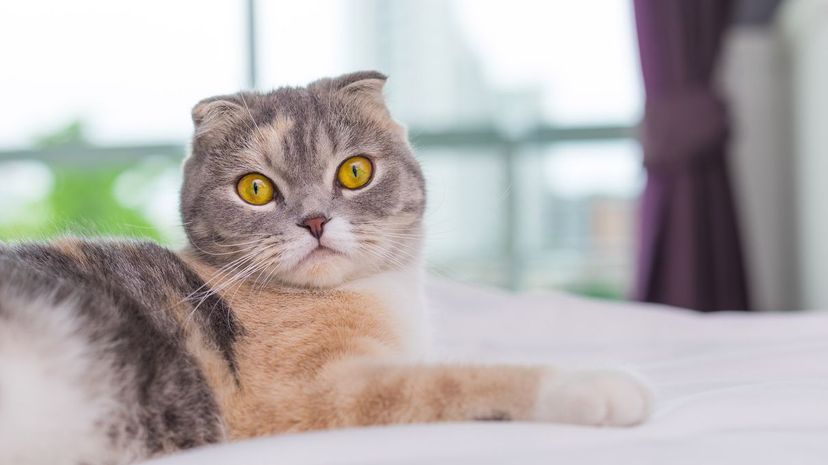
This cute cat with folded ears unfortunately often suffers from health problems due to its breeding. They have shorter than average limbs that can cause trouble walking and often develop early osteoarthritis.
Advertisement
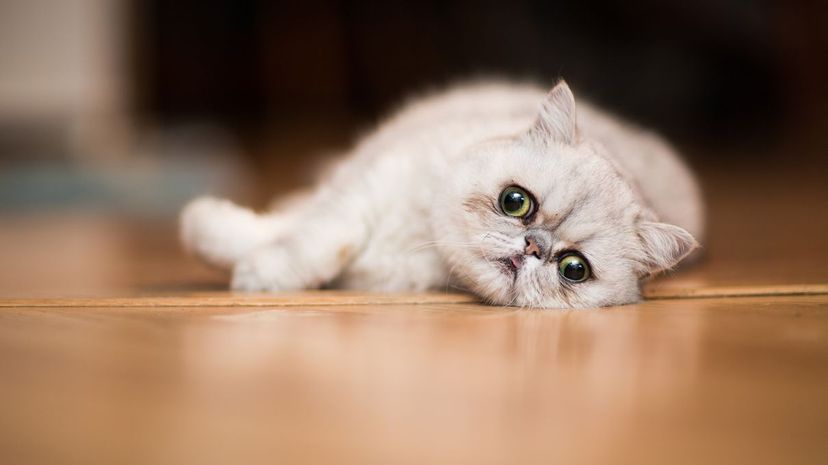
The exotic shorthair looks almost like a Persian with its hair clipped. Although, compared to Persians, they're more lively and playful. They are a low maintenance cat that needs less grooming than their long-haired counterparts.
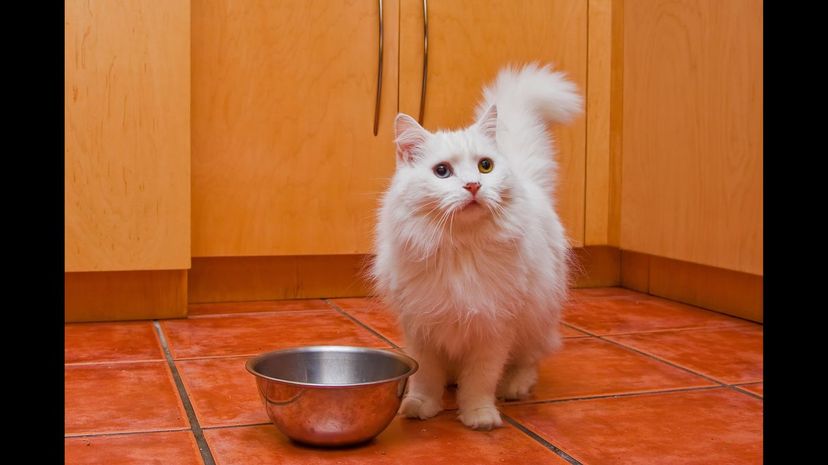
This shaggy cat is known for its docile personality. If you pick it up, it will probably relax with a bored expression on its face as you carry it around. They generally get along with other animals and children.
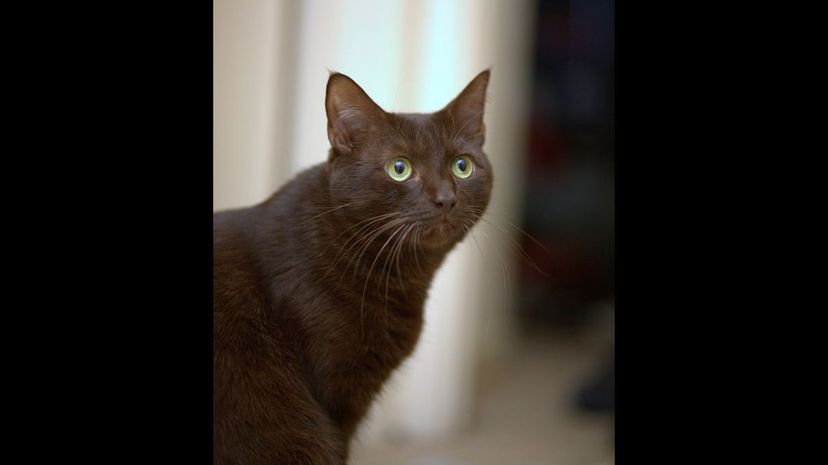
The Havana's long face gives it an almost mouse-like appearance. They have a high need for attention and don't do well without constant human interaction. Their coat ranges from mahogany to brown-black.
Advertisement
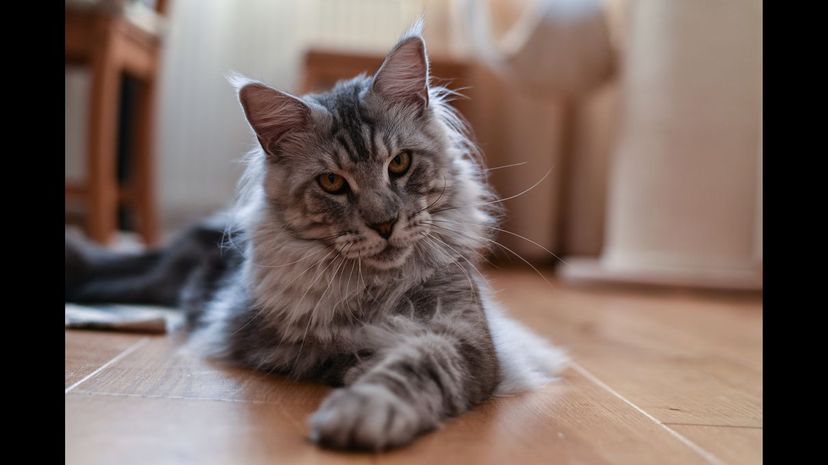
The Maine Coon is a hardy cat with long, shaggy hair. There's an old wives tale that says that they originate as the offspring of raccoons and domestic cats. Although that wouldn't be possible, some other people think that they may have bobcat blood (although there's no evidence).
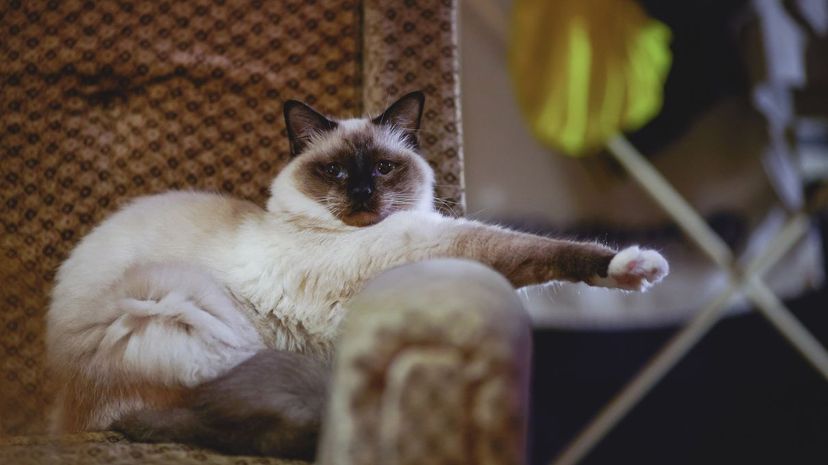
Birmans are naturally curious and relatively low maintenance cats. They are known to offer a lot of affection and expect it in return. If you're looking for a docile companion, this may be the cat for you.
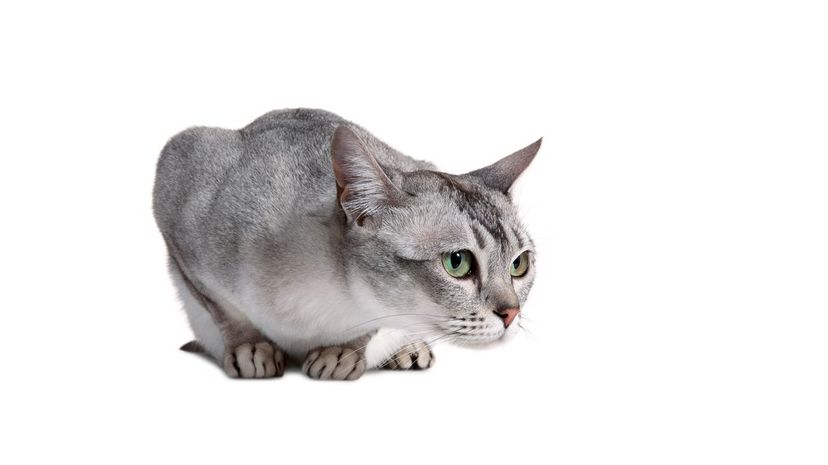
The Burmilla is a relatively new breed, having originated in the 1980s in England. It's a cross between a Chinchilla and a Burmese. It was introduced into North America in the 1990s and has slowly been gaining popularity.
Advertisement
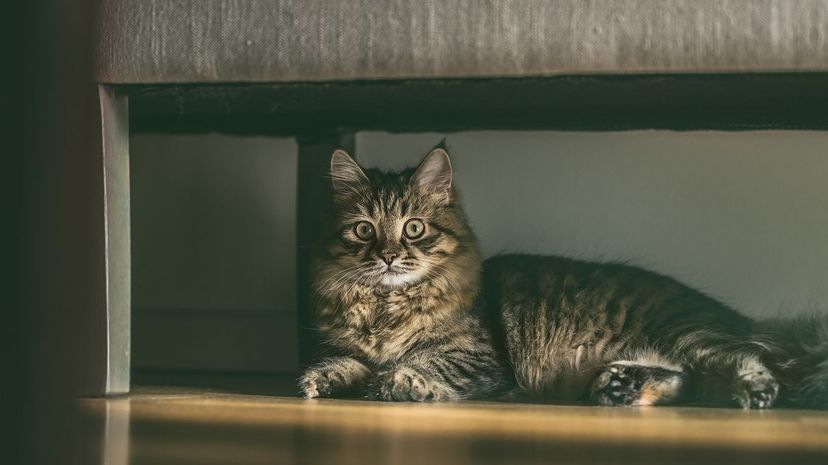
The Siberian comes from one of the harshest environments in the world, Siberia. Russian lore says that at one point they weighed up to 45 pounds. They also have a peculiar fascination with water and often investigate bathtubs and sinks.
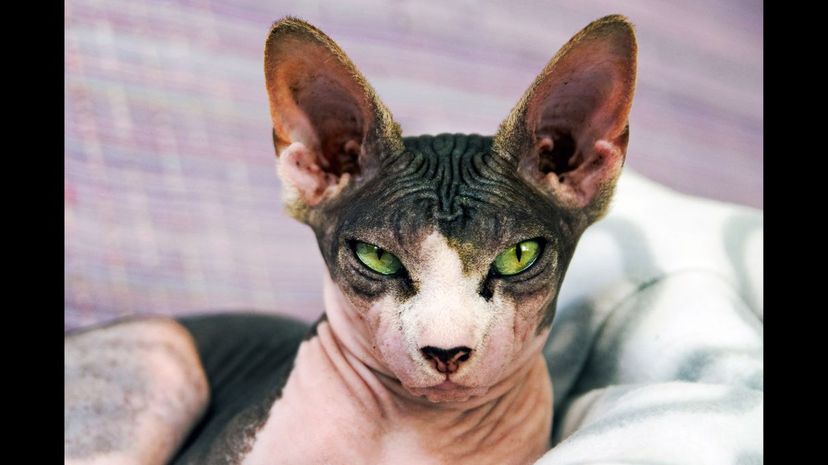
Cats are often stereotyped as independent, but that's rarely the case with the Sphynx breed. This hairless cat is known to require a lot of attention. They're also one of the more agile breeds and often find themselves on top of doorways and bookshelves.
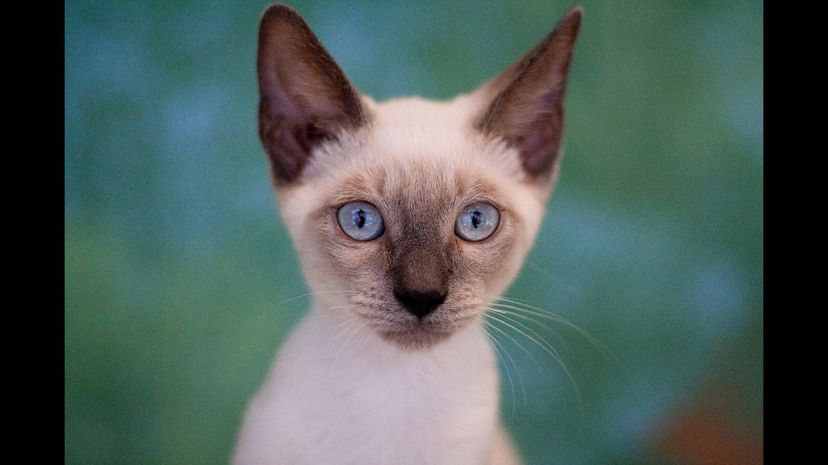
Siamese cats are among the loudest. If they're hungry, they'll let you know with high-pitch meows. They also require a high amount of attention. If you leave them alone overnight, don't be surprised if they get into some destructive mischief.
Advertisement
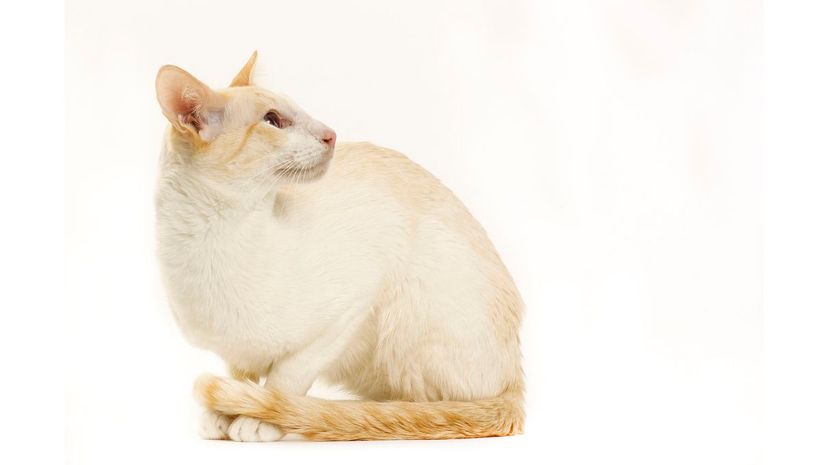
Oriental Shorthairs are among the smartest and most playful breeds of cat. They often form a strong bond with their primary caretaker and make their wants known by their frequent meows.
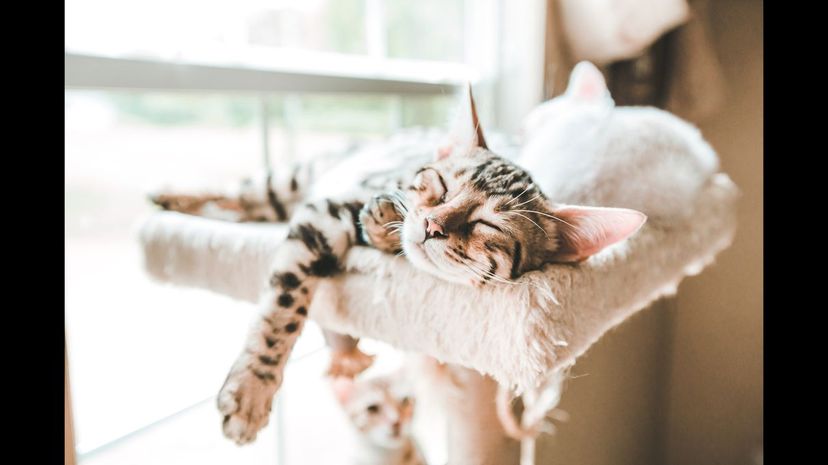
Bengals are known for their love for climbing. They often climb on top of doorframes and shelves. They often learn tricks such as how to flush a toilet ... which can be a problem if you're trying to keep your water bill in check.
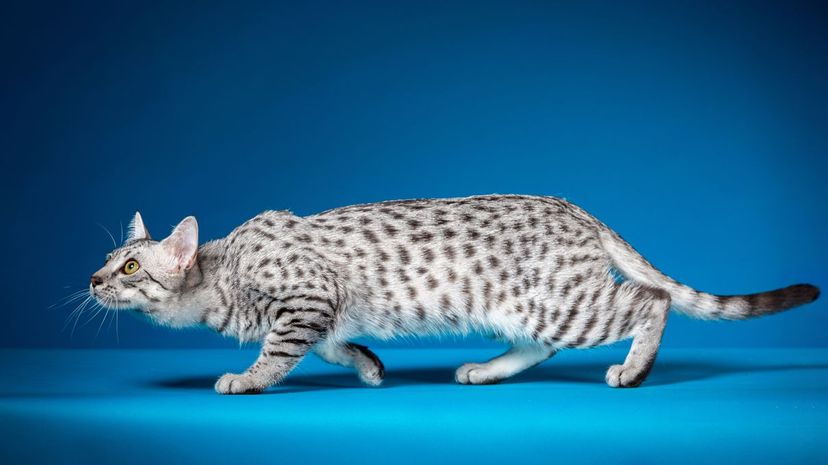
Egyptians have a long history of keeping cats as pets dating back at least 5,000 years. It's thought that the Egyptian Mau may be among the oldest breeds of cat. They generally take a while to warm up to strangers in the home.
Advertisement
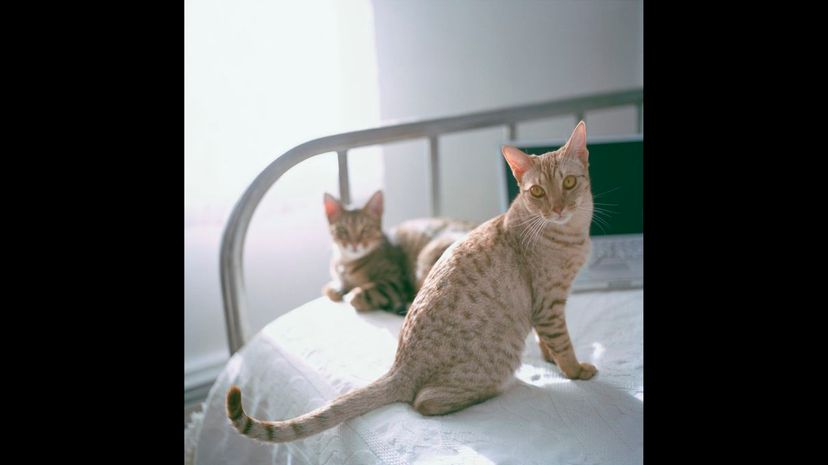
Despite its wild appearance, the Ocicat is quite tame and enjoys human company. It's thought that the Ocicat is a mix between an Abyssinian and a Siamese. Its name comes from the wild cat species ocelot.
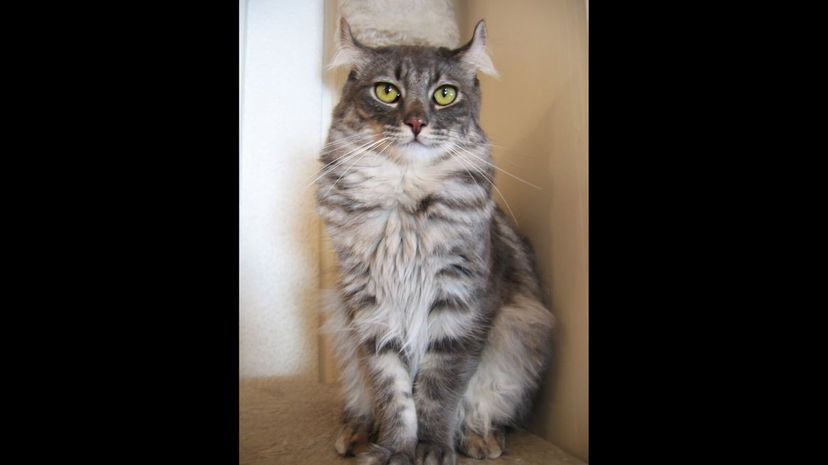
The American curl gets its name from its uniquely curled ears. They come in a variety of colors and come in both long hair and short hair variants. They're known to be affectionate while not requiring constant attention.
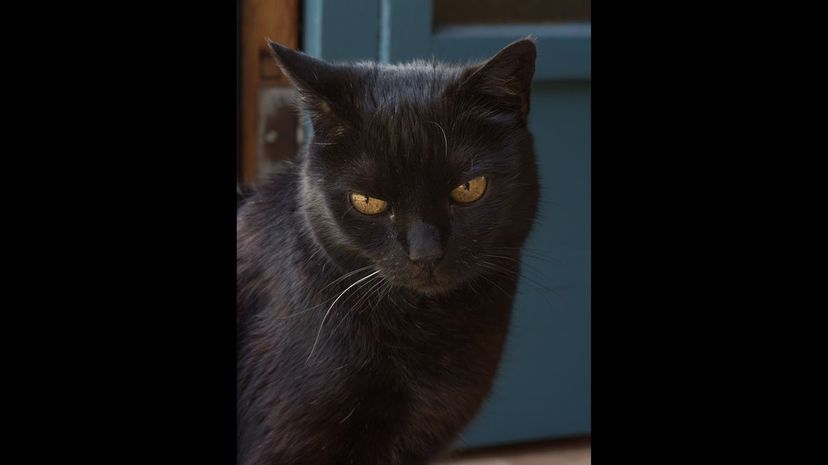
The York Chocolate is a relatively new breed. It's thought that it's the product of a brief romance between a longhaired black and white cat and a longhaired black cat in the 1980s. They're known to do well with children or other cats.
Advertisement
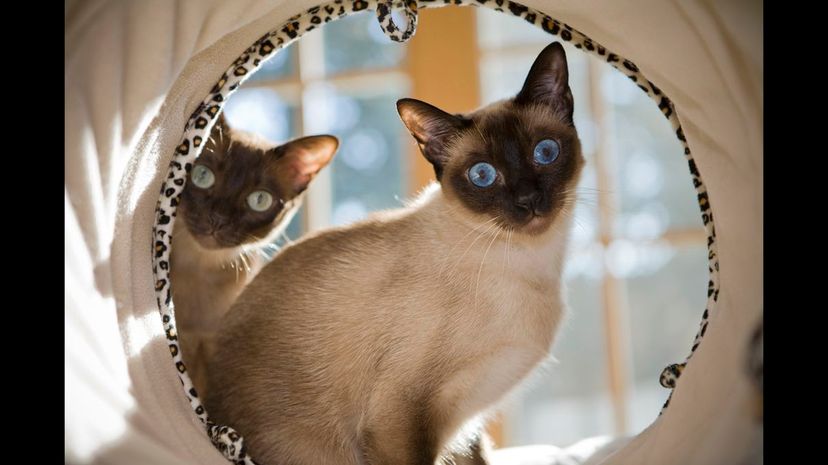
The Tonkinese comes from a mixture of the Siamese and Burmese breeds. They're known for their high energy levels and their playful behavior. They do well in a fast-paced environment, but if you don't have the energy level to match them, they might get bored.
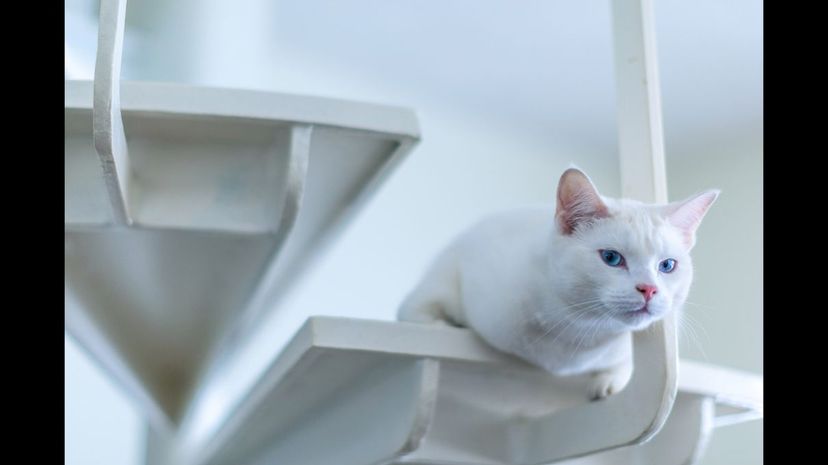
The angora is an ancient breed with a slender body and unclear origins. It's thought that it originated from the African wildcat. They're an intelligent and playful breed that's known to show their owners affection.
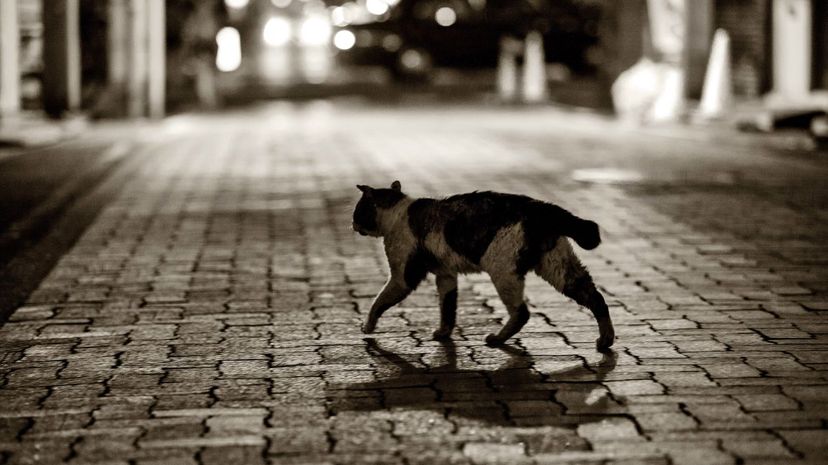
The Japanese Bobtail is well-known for its playfulness and affection. It's thought that the ancestors of the modern Japanese Bobtail came from China and Korean about 1,500 years ago. They have a short tail that may not be visible in some cats.
Advertisement
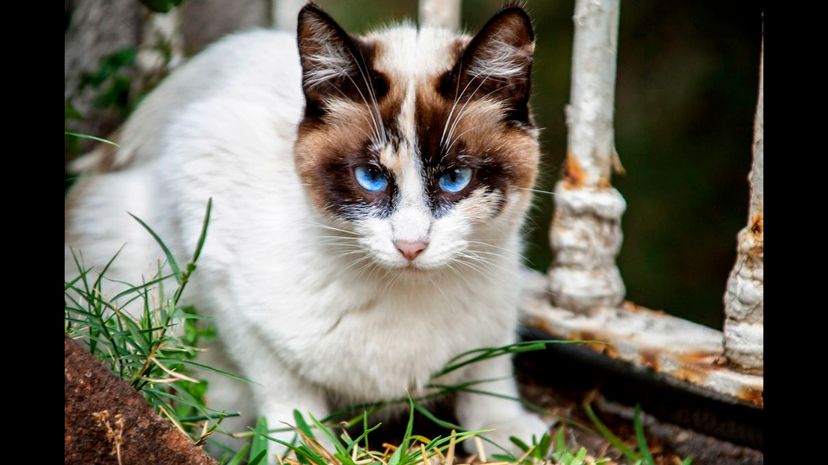
The Snowshoe originally came from a mixture between a Siamese and an American Shorthair. They're generally gregarious cats that have an outgoing personality and crave human attention.
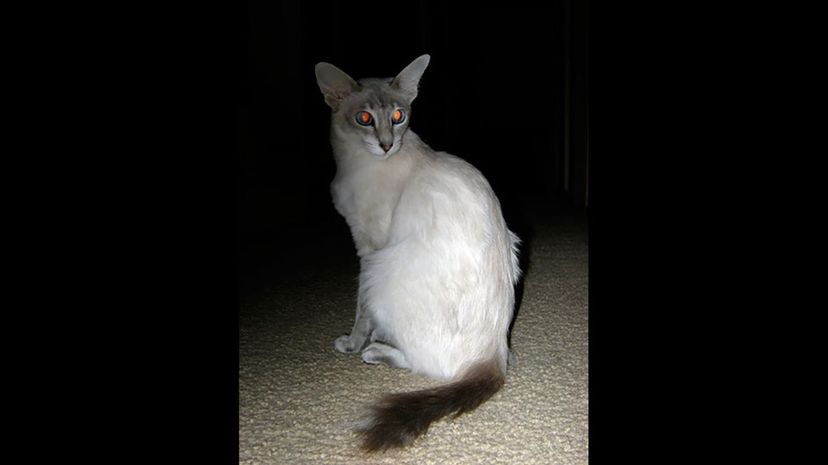
The Javanese breed has a similar personality type to the Siamese breed, meaning that they have a high need for attention, are intelligent and are very active. The name comes from the Isle of Java near Indonesia.
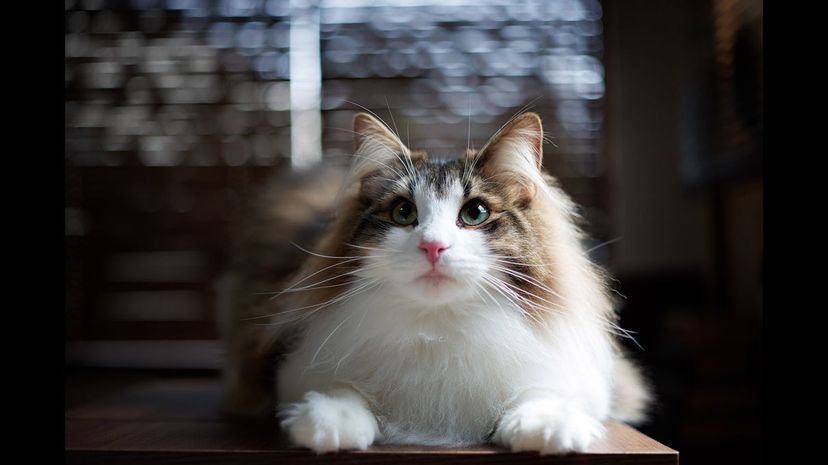
If you're living with a Norwegian Forest Cat, don't be surprised if it jumps up on your bookcases and counters. They have a double coat that helped protect them in their homeland of Norway. Although they have a wild appearance, they're friendly toward humans.
Advertisement
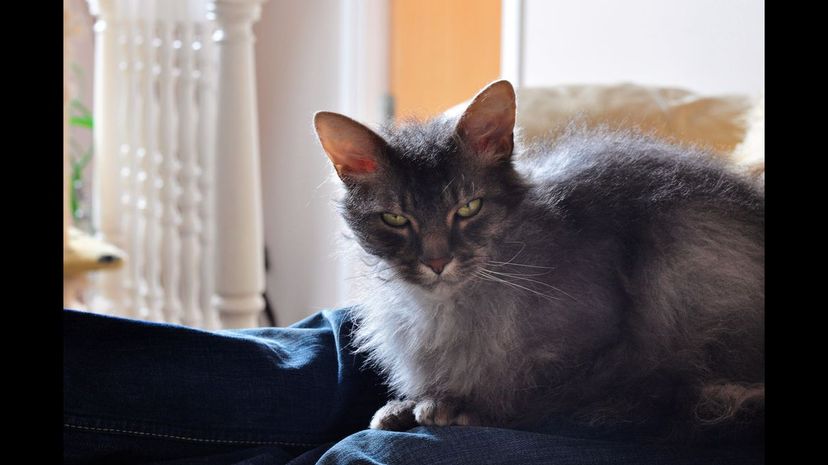
The LaPerm is another affectionate cat species known for its good attitude but friendly demeanor. It's a fairly new breed and has only been recognized as a distinct breed since the 1980s. They come in almost every color.
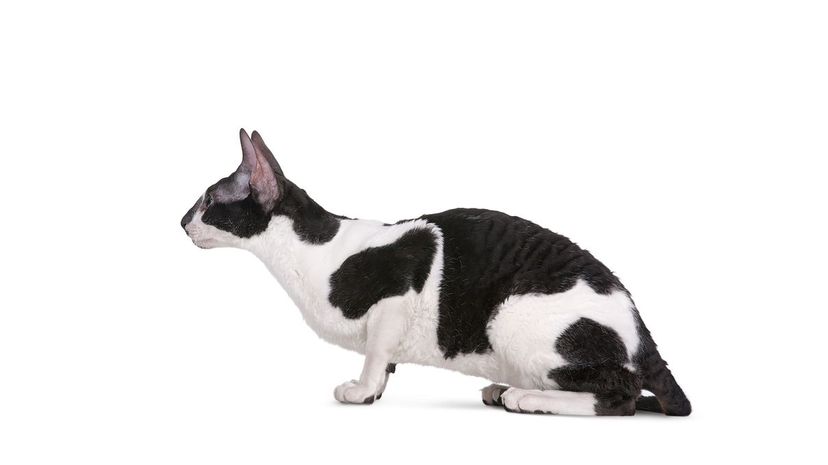
The Cornish Rex has a distinct look that separates it from other breeds. If you own a Cornish Rex, don't be surprised if you're no longer the master of your home. If you turn your back, they might steal your dinner right off your plate.
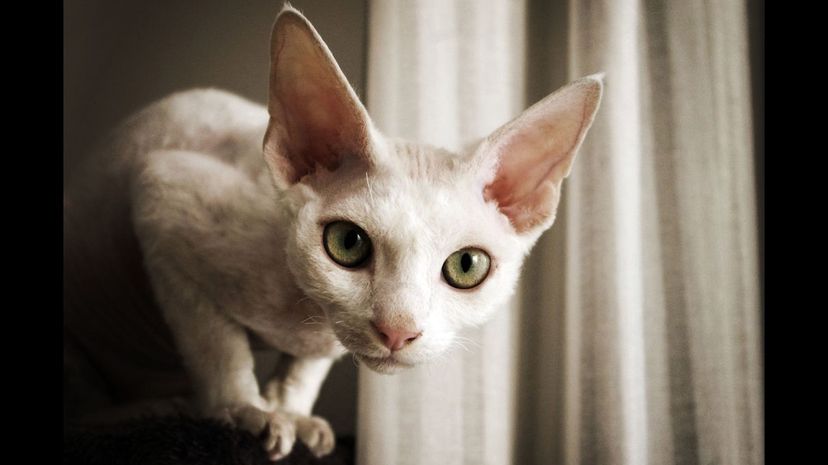
It's hard to mistake a Devon Rex for any other breed because of its distinctly pointy ears. They get their name from the county of Devon in England where they're thought to have originated from. They shed less than most other breeds.
Advertisement
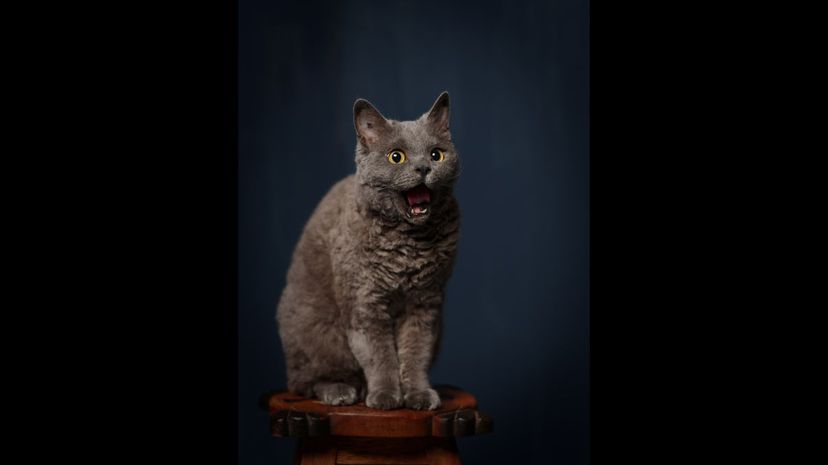
The Selkirk Rex is well-known for its relaxed personality and its love for spending time around humans. They often enjoy sleeping with their owners, and they don't do well by themselves. They get along with most other cats and dogs.
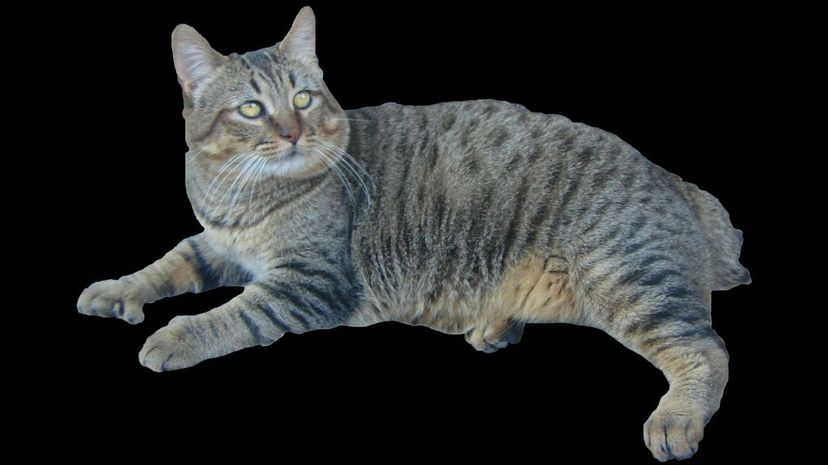
At a glance, you might think you're looking at a North American Bobcat. However, they have no relationship to their wild counterpart. The Pixiebob is just an average house cat that has been bred to have a short bob-like tail.
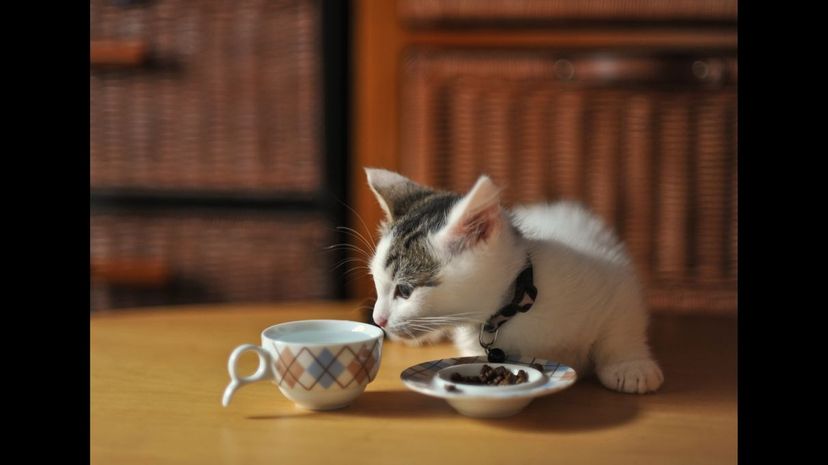
The Munchkin is a friendly and playful breed that's known for its short legs. It's almost like the wiener dog equivalent of the cat world. They aren't as agile as their long-legged counterparts, but you can often see them standing on their hind legs like a prairie dog.
Advertisement
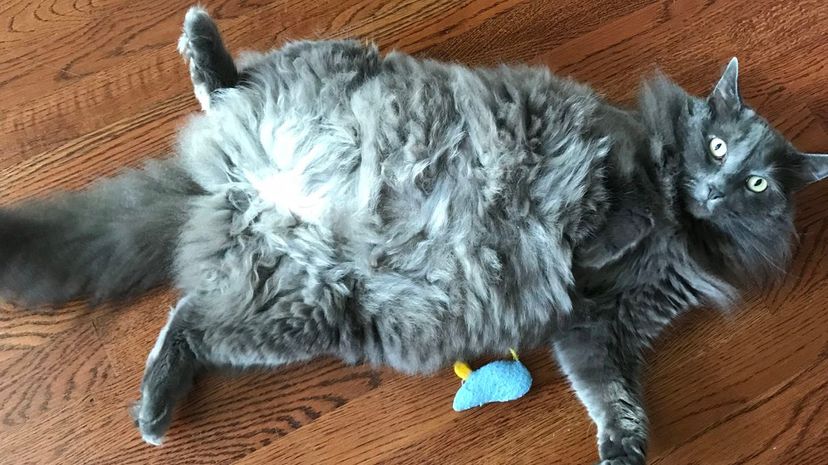
The Nebelung may look similar to the Russian Blue, but it's a little less standoffish to strangers than its Russian counterpart. Most cats of this breed like a steady daily routine and might get upset if it gets disrupted.
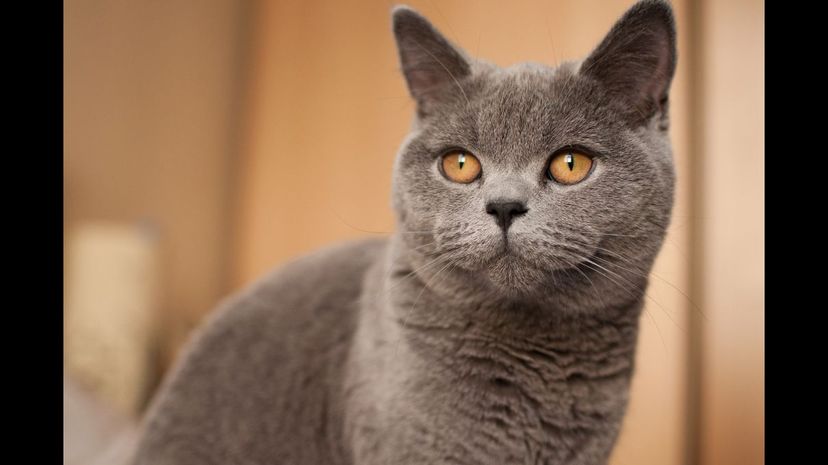
The British shorthair resembles its American counterpart. It's known for its undemanding personality and good manners. They will show affection, but they're not likely to follow you around the house.
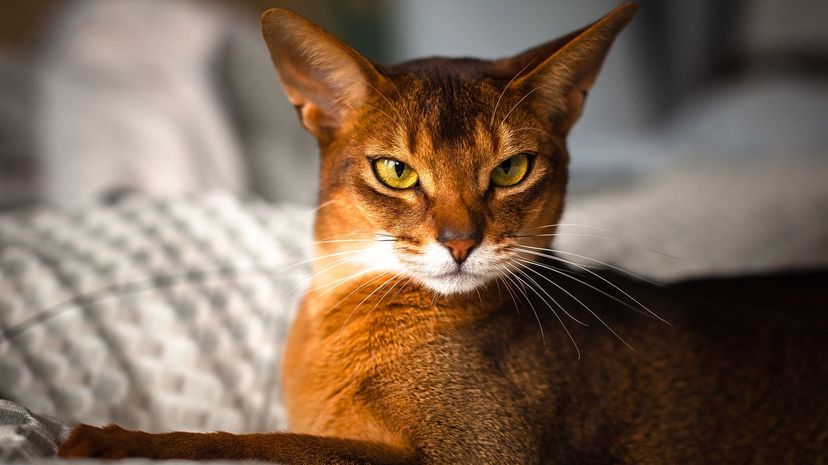
The Abyssinian is one of the most playful and energetic cats on this list. If you're looking for a cat that likes to be picked up, this probably isn't the cat for you. They are thought to be one of the oldest types of cats, but their origin isn't known.
Advertisement
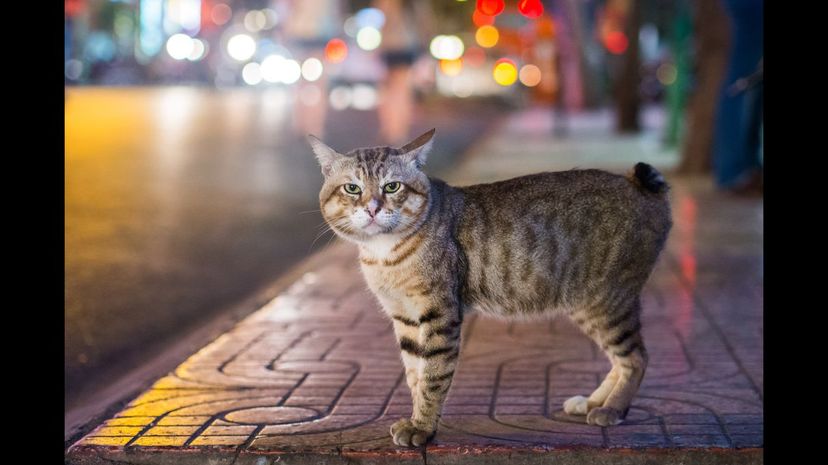
The Manx is a round cat with a big head and broad chest. They're extremely friendly toward children and other pets. They'll even get along with dogs assuming that the dogs aren't too rowdy.